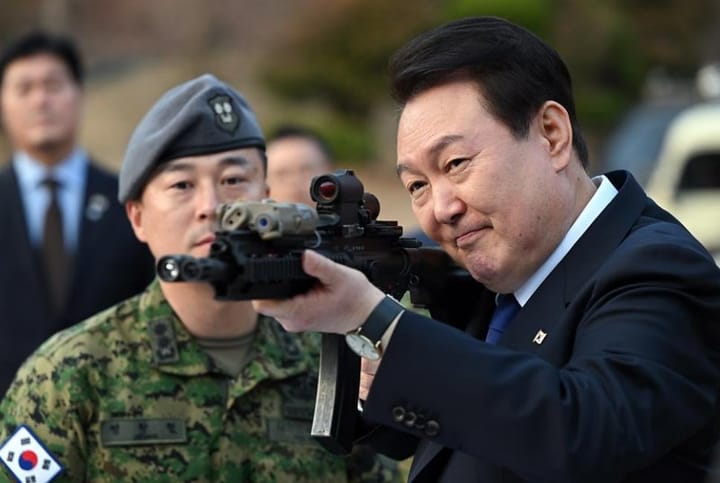Trump Releases Epstein Files, Halts AI Regulation; Judge Blocks National Guard in DC

TL;DR
- Trump signs bill to release Epstein files, sparking legal debate.
- Trump executive order moves to halt state AI regulation, prompting federal‑state dispute.
- Federal judge blocks National Guard deployment in Washington DC, citing constitutional concerns.
Trump Signs Epstein Files Transparency Act: Legal and Political Implications
Background and Legislative Action
On 20 Nov 2025 President Donald Trump signed the Epstein Files Transparency Act, directing the Department of Justice (DOJ) to publish all documents related to the Jeffrey Epstein investigation within 30 days. The bill passed the House with all‑but‑one vote on 18 Nov 2025 and received unanimous consent in the Senate on 19 Nov 2025. The legislation authorizes redaction of victim‑identifying details but explicitly prohibits withholding material for “embarrassment, reputational harm, or political sensitivity.”
Scope of the Released Material
The DOJ must handle more than 33 000 pages of emails, flight logs, and financial records identified by the House Oversight Committee, plus an additional 23 000 pages disclosed separately. Key data points include:
- Seven documented trips by former President Trump on Epstein’s aircraft, with passengers listed as Marla Maples, Tiffany Giuffra, and Eric.
- Entries from Epstein’s “Black Book” that connect technology CEOs (e.g., Peter Thiel) and political figures (e.g., Stacey Plaskett).
- Approximately 300 GB of digital evidence, some flagged as child‑sex‑abuse material by the 1‑800‑4‑CHILD hotline.
Legal Tensions
The act’s dual redaction provision creates a conflict between statutory privacy protections (HIPAA, 18 U.S.C. § 2512) and the explicit ban on political‑sensitivity exemptions. The DOJ has indicated it will apply redactions only where ongoing investigations require it, citing a memo released on 22 Nov 2025. Privacy‑rights groups are expected to file FOIA and Privacy Act challenges, arguing that victim protection redactions are insufficient without broader safeguards.
Implementation Outlook
- 30‑day deadline predicts a redacted portal containing roughly 30 000 documents, with victim identifiers removed but minimal political‑sensitivity redactions.
- Within two weeks, at least two privacy‑rights organizations are likely to seek preliminary injunctions to narrow the release scope.
- A bipartisan congressional oversight hearing is expected in late December to assess compliance and address any remaining redaction disputes.
- The disclosed flight logs and correspondence may become focal points in the 2026 election primaries, given the presence of candidate names in the data set.
Federal Preemption of State AI Laws Signals a New Era of Centralized Regulation
Executive Action and Enforcement Tools
- Presidential executive order slated for 20 Nov 2025 targets all state AI statutes.
- Department of Justice to establish an AI Litigation Task Force within 30 days, led by Attorney General Pam Bondi.
- Department of Commerce to assess state AI laws and potentially withhold federal grants within 90 days.
- FTC and FCC to coordinate preemption reviews and develop uniform model‑disclosure standards.
State Landscape Before the Order
- California and Colorado enacted transparency‑reporting statutes requiring developers to disclose risk‑mitigation plans and training data.
- Oregon adopted similar reporting obligations in early 2025.
- More than 1,000 AI‑related bills have been introduced nationwide since 2023, producing a fragmented regulatory environment.
Legal Conflict Points
- Preemption Doctrine: Order asserts state AI statutes obstruct a national policy, invoking the Supremacy Clause.
- Funding Leverage: Conditional federal grants create direct economic pressure for state compliance.
- Agency Coordination: FTC and FCC reviews expand preemption scope beyond the executive order.
Institutional Reactions
- Senate vote 99‑1 opposes a federal moratorium, emphasizing states’ role in AI risk protection.
- Rep. Marjorie Taylor Greene frames the order as an infringement on federalism.
- Center for Democracy & Technology warns that the move undermines democratic oversight.
- EU policymakers simultaneously ease AI regulations, highlighting divergent international approaches.
Projected Judicial and Fiscal Outcomes
- DOJ likely files suits against California, Colorado, and Oregon within 45 days of the order.
- States expected to seek preliminary injunctions on preemption and First‑Amendment grounds.
- If lower courts diverge, Supreme Court review could occur within 12‑18 months.
- Commerce may withhold roughly 5 % of AI‑related federal grant funding from non‑aligned states by mid‑2026.
Strategic Implications for Stakeholders
- Uniform federal standards could lower compliance‑cost variance but increase legal uncertainty during transition.
- State‑driven transparency initiatives risk curtailment, potentially slowing AI product deployment in targeted jurisdictions.
- Continuous monitoring of DOJ filings, FTC/FCC guidance, and state legislative counter‑measures will be essential for compliance planning.
Federal Courts Reinforce Local Authority Over Unapproved Guard Deployments
Judicial Block on Guard Deployment
- U.S. District Judge Jia Cobb issues a preliminary injunction halting the deployment of >2,300 National Guard personnel to Washington, D.C.
- Injunction active until an appeal is filed by Dec 11, 2025.
Legal and Constitutional Grounds
- The President lacks explicit statutory authority to federalize the District’s police forces or command National Guard units for domestic law‑enforcement without congressional authorization or local consent.
- The District of Columbia’s self‑governance, protected by the Constitution, is infringed when federal forces operate unilaterally.
- Ruling aligns with precedent limiting executive use of military forces in domestic contexts (e.g., *Youngstown Sheet & Tube Co.*).
Data Trends on Crime‑Emergency Claim
- National Guard deployment peaked at 2,300 personnel.
- Violent crime fell 35 % nationwide; Washington, D.C. recorded a historic low in 2025.
- Disparity between cited “crime emergency” and actual crime trends indicates a non‑security motive for the deployment.
Emerging Judicial Trends
- District courts increasingly issue injunctions against expansive executive security actions (e.g., recent orders limiting immigration‑agent forces).
- Parallel litigation in other states reflects a broader conflict over non‑consensual National Guard use.
- Courts employ “principled” language, suggesting an evolving norm of legal scrutiny independent of partisan considerations.
Policy Implications
- Immediate withdrawal of Guard units from the District pending appellate review.
- Federal agencies must revise intergovernmental protocols to ensure statutory compliance and secure local consent before domestic deployments.
- Decision provides persuasive authority for forthcoming challenges in other municipalities seeking Guard support.
Forecast
- Short‑term: Appeal expected before the Fourth Circuit; clear statutory gaps make upholding the injunction probable.
- Medium‑term: Increased litigation will likely prompt legislative clarification of deployment authority.
- Long‑term: Judicial precedent may solidify a doctrinal baseline restricting executive Guard use for domestic law‑enforcement absent explicit congressional authorization, reinforcing the balance between federal and local powers.



Comments ()